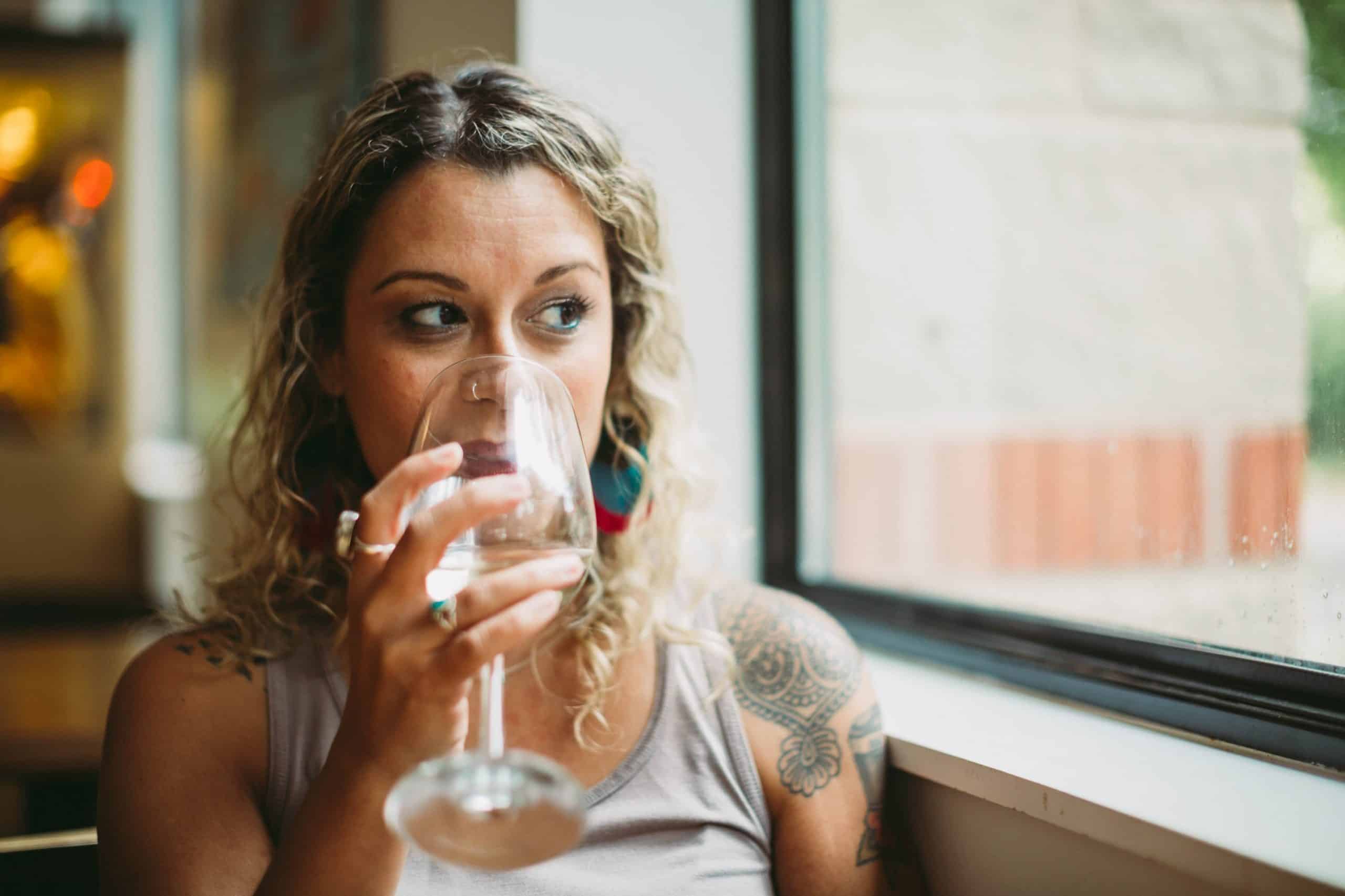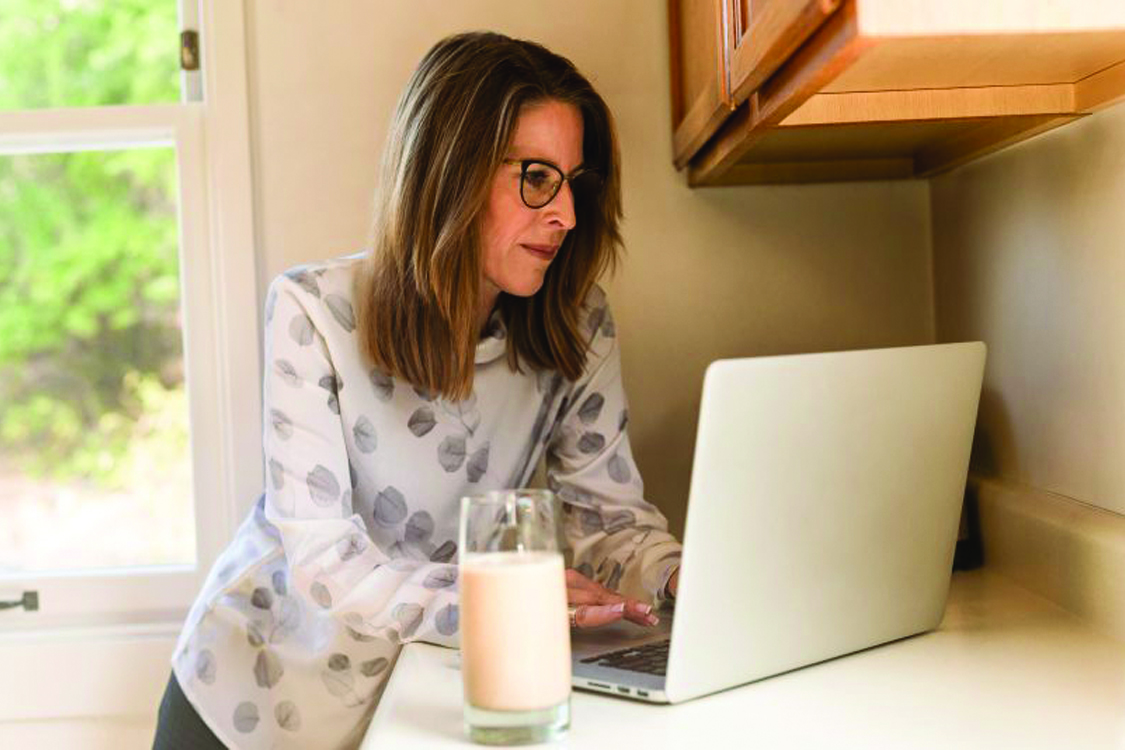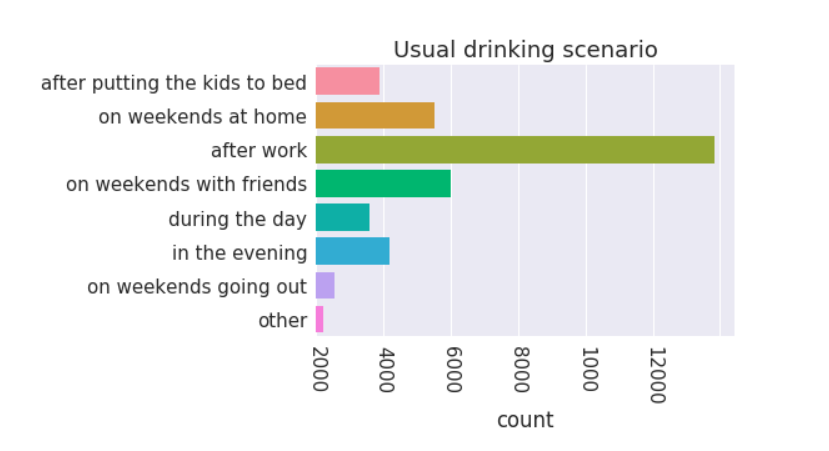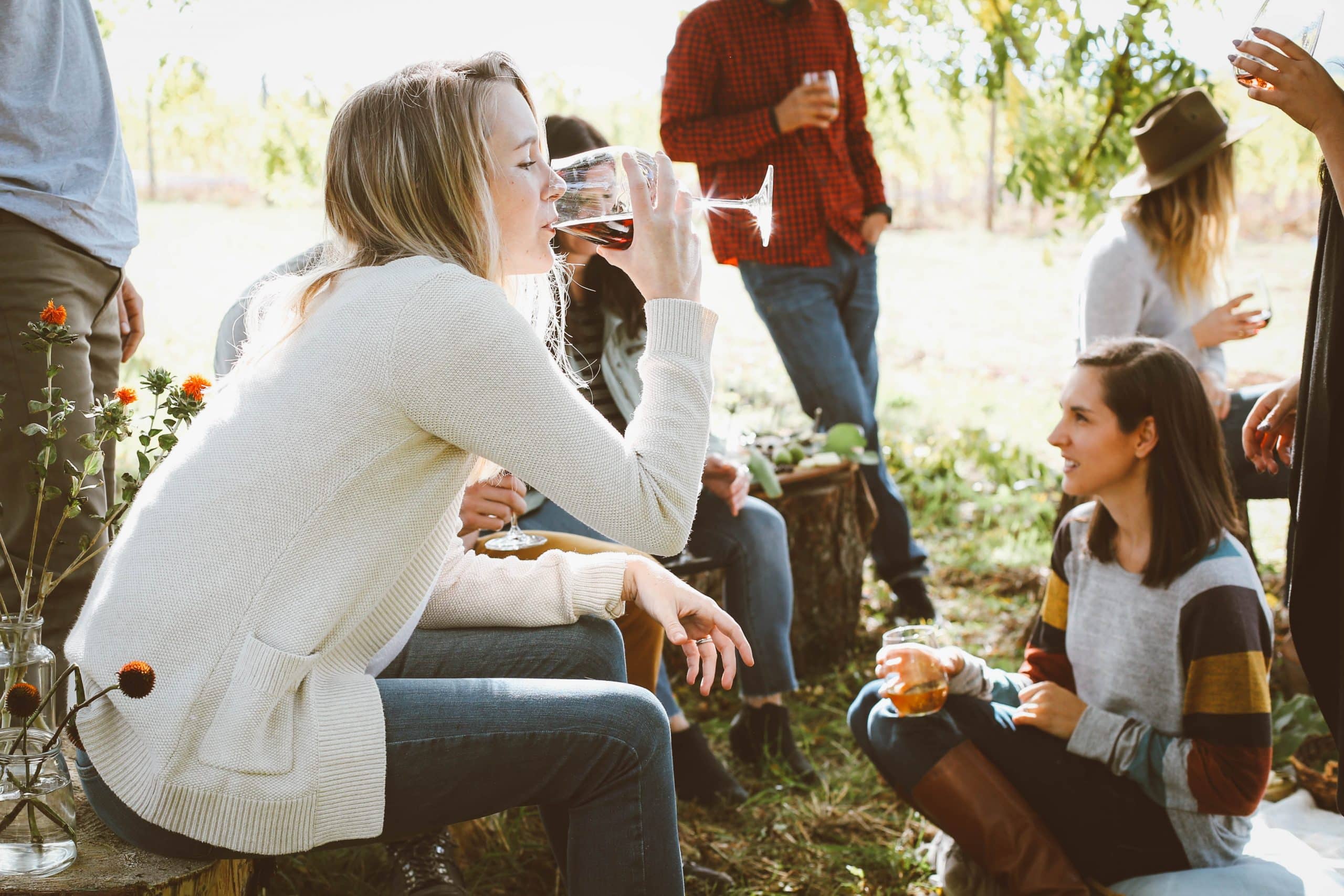If you find yourself having an unhealthy relationship with alcohol, should you just stop altogether? Or should you try to moderate your drinking? Our Daybreak health coach helps you discover the best option for you.
Members on our supportive community app, Daybreak, often debate about whether it is possible for someone to be able to moderate their drinking, or whether this is not going to be possible for them.
Some people believe passionately in abstinence, having learned through repeated relapses and difficulties, that it is not possible for them to moderate their alcohol consumption. Others work towards moderation, finding the balance between using alcohol as a social lubricant, while not becoming too reliant on it to regulate difficult emotions.
The truth of the matter is, it is a bit of both
It may be the case that there are certain groups of people who would be much better off not drinking. This can include people with serious mental illness, a history of trauma or neglect, or ongoing chronic stress. That said, there are people with these profiles who are also able to have reasonable and positive relationships with alcohol. It is just a lot harder to achieve.
There is a relationship between an individual’s response to stress and their reaction to alcohol. This means that the reward and regulation systems of someone who is stressed, anxious, depressed or generally suffering, can become sensitised to alcohol.
Taking the edge off
A glass of wine after a busy work day might feel twice as rewarding to someone who is suffering from anxiety or grief. This could be because they are already feeling in need of comfort and relaxation, even before their stressful day. Our brains quickly learn what kinds of things are effective in taking away pain and replacing it with something more rewarding. Unfortunately, alcohol is one of those things that works as a socially acceptable anaesthetic.
This is often why we might find ourselves drinking more than we would like to during stressful times in our lives. It is also why, when things settle down a bit, we might be interested in pulling back from alcohol a little and focussing on our health and other aspects of our lives.
For people with ongoing mental health difficulties or ongoing stress, this can be a lot harder. Sometimes thing don’t settle down, and alcohol becomes something that is used as habitually as coffee as a way to regulate mood or energy levels.
So how do you know which group you fall into?
If you answer yes to the following questions, it is possible that total abstinence is a safer option for you:
– Have you always struggled to stop drinking after one or two drinks? This might indicate that you struggle with moderating the effects of alcohol, and your reward system has become sensitised to the effects.
– Have you experienced significant stressful or traumatic events in your life, after which you had problems moderating your alcohol use? This might indicate that alcohol has been incorporated into your emotional regulation, and you may benefit from a long or permanent period of abstinence.
– Have people around you commented or expressed concern about your drinking or about not having an ‘off’ button? This might mean that while you don’t necessarily notice the effects of alcohol, those who care about you might be getting concerned about the level of intoxication you are reaching.
If you feel that the above don’t apply to you, and you are more suited to moderation, here are some ideas that might be helpful for you and reduce the risks that come with drinking:
– See if you can reflect on situations in which you consumed more than you intended to, and see if you can identify some things that contributed to the problem. For example, ‘I went out when I was exhausted from work and hadn’t eaten, and drank very quickly’. Another example might be, ‘I had a fight with my partner and knew I wasn’t in the right frame of mind to go out drinking’. Often, looking back, we are able to see that there were things that we could have done differently.
– Monitor your alcohol usage over the week. Take note of how much you drink each session, and how many drinks that equates to over the week. Set yourself some guidelines for how many drinks you would like to consume each week, and on what days. Consider having some alcohol-free days during the week to allow your body to recover.
– Gauge your limits. If you find that it is hard to stop after two glasses of wine, make sure that you take your time in reaching that amount. This may mean pacing yourself with sparkling water in between drinks, or not opening a bottle until dinner is served. Doing this will help you to keep your blood alcohol content below a certain amount, and give your body the chance to process the alcohol properly.
– Consider who you are drinking with, and what you are drinking. Often we are influenced by those around us in terms of volume and pace of consumption, and we can sometimes find that certain people or situations will reliably end up exceeding our limits. For example, having friends over for dinner, or a celebratory night out with work colleagues. See if you can set expectations early on about how much you can drink, or limit the availability of alcohol like only keeping one bottle of wine in the house.
– Consider the situations where you feel you are relying on alcohol to change your mood, and then avoid drinking in these situations! These are what we would refer to as risky situations, in which we are using alcohol to regulate our emotions. Using alcohol in this way is risky because we can lose the ability to regulate our emotions in other ways. We can also over-use alcohol if the emotions are particularly overwhelming. For example, alcohol might help to temporarily relieve a feeling of anxiety, and so we tend to use a lot of it when we feel a lot of anxiety, but of course, this isn’t effective at all.
Re-learning a relationship with alcohol
Part of the process of learning to moderate is to ‘re-learn’ our relationship with alcohol, and move away from some of the problematic ways we are using it. We could be drinking to feel happy, as a way to escape unpleasant feelings of sadness or anxiety or as a way to numb or avoid painful things in our lives. Try to move towards using it to celebrate special occasions, and add to your experience of pleasure and enjoyment.
Many people enjoy alcohol, and the experience of sharing a bottle of wine or having a beer with friends. Often, members of Daybreak are reluctant to give up the opportunity to do this when the occasion arises, and often they don’t need to. It is just about being aware of how they are using alcohol, and how they can have it as just one part of their life, without it taking over the show.
If you’d like some more information about which is the best approach for you, head over to Hello Sunday Morning to read more about how to change your relationship with alcohol, and be part of a supportive community of people who are working towards the same goal. The Daybreak app also offers Health Coaching for people wanting some more information about how to achieve long lasting and substantial change.










